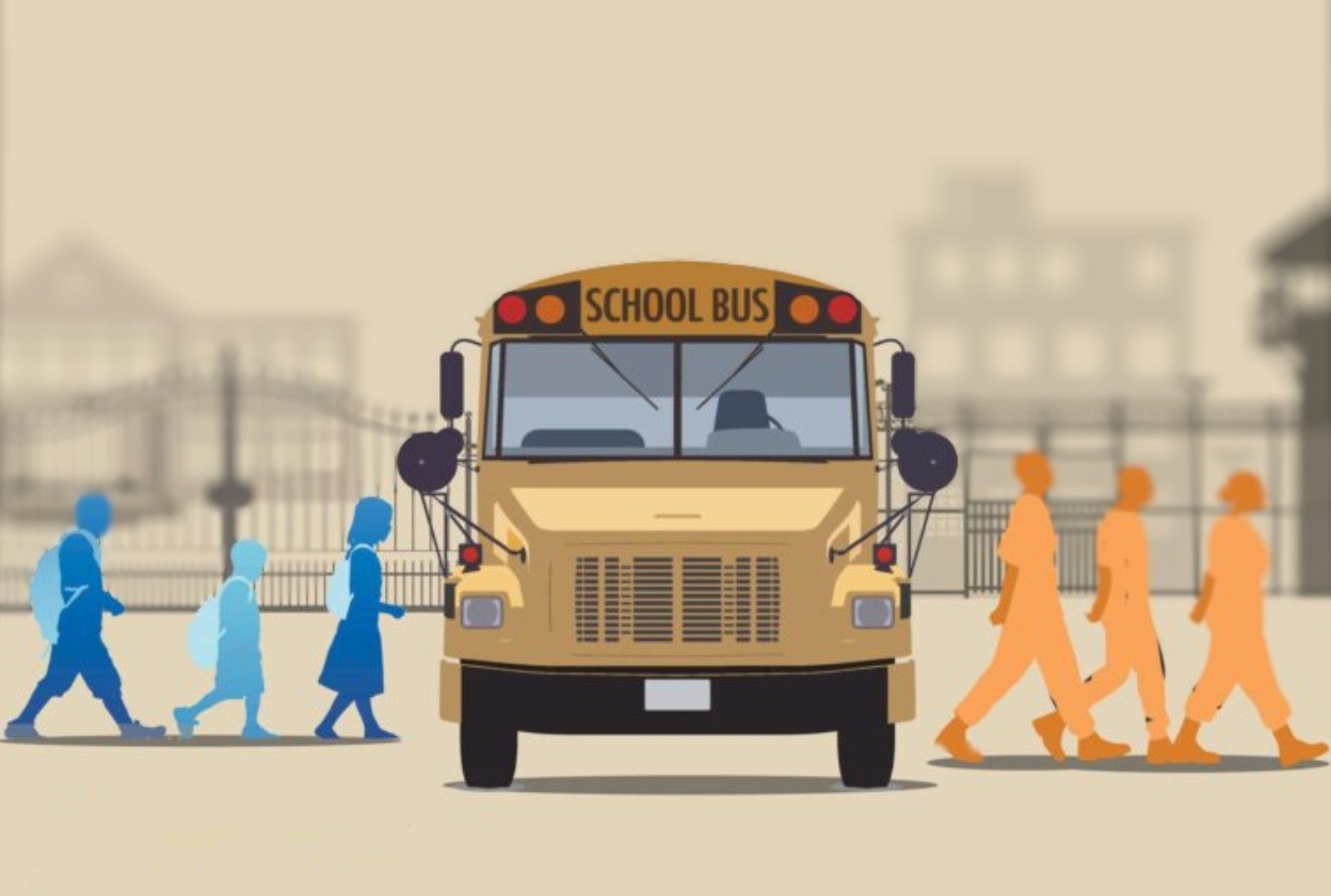Ending the School to Prison Pipeline in California
Where legislation falls short, local organizations work to end the school to prison pipeline

Across the nation, schools often implement harsh punishments that push students out of school and into the juvenile justice system, creating what is known as the school-to-prison pipeline.
Students who experience discipline that excludes them from classroom learning are more likely to repeat a grade, drop out of school, and become involved in the juvenile justice system. According to the U.S. Department of Education’s national civil rights data, Black students, boys, and students with disabilities are disproportionately disciplined in K-12 public schools. In California public schools, while the average statewide suspension rate during the 2021–22 academic year was 3.5 percent, the average rate for African American students was 9.1 percent, higher than any other racial group. Suspensions are inextricably linked with student entanglement with law enforcement in several ways, including that many states have laws that require school officials to notify law enforcement of certain suspendable student behaviors.
So-called “zero tolerance” policies continue to be widely used as responses to school disruption and violence. The establishment of zero-tolerance policies began in the 1980s and were originally aimed at dealing with major offenses involving weapons and drugs. The “zero-tolerance” policy - messaging that certain behaviors will not be tolerated by punishing all offenses severely, no matter how minor - rose to national prominence during the Reagan Administration’s intensified “War on Drugs” and became federal law beginning with the Drug-Free Schools and Campuses Act of 1989. These damaging policies escalated in the 1990's after messaging of the mythical "Juvenile Superpredator" that shaped criminal justice policies for decades and caused irreparable harm to an entire generation of Black youth.
Like any fear-driven myth based in racist tropes, the “superpredator” theory was not borne out in crime statistics. Juvenile arrests for murder, and juvenile crime generally, had already started falling when think tanks were pushing the now-discredited theory. By 2000, when tens of thousands more children were supposed to be out there mugging and killing, juvenile murder arrests had fallen by two-thirds.
What resulted from that era of mass incarceration of juveniles, and especially juveniles of color, is the school to prison pipeline.
In California, there have been recent efforts by the legislature, the Department of Education, as well as at the county, district, and school levels to dismantle the school-to-prison pipeline. One of the results of this movement was the proposal of SB 1273, which was passed by the Senate in May 2022, but failed in the Education Committee of the Assembly in late June 2022. Local organizations have stepped in to advocate where policy and legislation have lagged.
Dignity in Schools Campaign is a nationwide network of organizations challenging the systemic problem of pushout in our nation’s schools, while working to dismantle the school-to-prison pipeline. Dignity in Schools Campaign - California (DSC-CA) is comprised of 14 local California organizations, recognizing that local organizing is what should guide statewide efforts.
According to Ursula DeWitt, Co-Director of Movement Building with DSC-CA, there has been significant progress made in reducing school suspensions in areas where DSC-CA members organize. In the last 12 years, suspensions have been reduced by 50%. There have also been successes in reallocating funds from law enforcement to student services and implementing police-free plans in schools, which helps to build stronger, more connected communities. From 2019 – 2022, 11 school districts in California have successfully removed police from schools and ended school police contracts and 20 school districts have adopted transformative school discipline practices.
"Schools and law enforcement often position themselves as the primary “caregivers” for marginalized communities, perpetuating a cycle where help is intertwined with criminalization. We want to change and reimagine that."
To learn more about the work Dignity in Schools Campaign - California is doing in California schools, visit their website.










